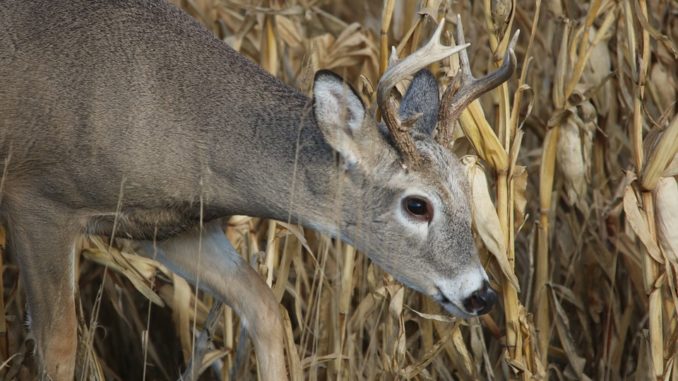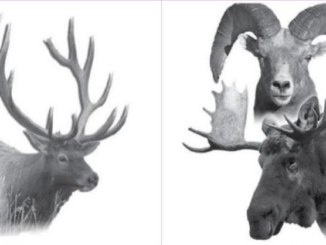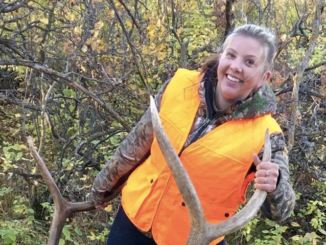
Earlier this week, the North Dakota Game & Fish Department reported that two deer taken during the 2017 Deer Gun Season – a whitetail buck and a mule deer doe – from Unit 3F2 in southwestern North Dakota tested positive for Chronic Wasting Disease (CWD). The fatal disease affects the nervous system of white-tailed deer, mule deer, elk, moose, and even reindeer. Without getting scientific, it damages portions of the animal’s brain by creating holes that result in a sponge-like appearance.
The disease progresses slowly and typically doesn’t manifest itself until animals are a year to a year and a half old. And it can take up to three years or more for the disease to prove fatal.
North Dakota has been testing for CWD since 2002. And while 22 of the 50 states have confirmed cases of CWD in the wild, North Dakota didn’t have its first case until 2009. That year a mule deer buck tested positive for the disease. Since that time, a total of 11 deer have been found with it– all in Unit 3F2.
Because of the existence of CWD in the state, the North Dakota Game & Fish Department has taken regulatory measures in hopes of preventing or slowing its spread to neighboring units. For example, hunters that harvest big game animals in Unit 3F2 are not allowed to transport a carcass containing the head and spinal column outside of the unit— unless its taken to a state-inspected meat processor within five days of the harvest. However, hunters are permitted to remove the head from the carcass if it is being transported to a licensed taxidermist or given to the North Dakota Game & Fish for testing.
In addition to these steps, the North Dakota Game and Fish Department also prohibits baiting in specific units. They also operate a “hunter-harvested surveillance program” each year that collects samples from animals harvested in specific regions of the state, and on-going year-round testing of animals found sick or dead.
While no evidence exists that CWD can be transmitted to humans, people are encouraged to take precautions when field dressing animals in units where CWD has been found. And consuming meat from animals known to have tested positive is strongly discouraged.
If you see a deer, elk, or moose that appears sick, emaciated, or lethargic; call the North Dakota Game & Fish Department immediately at (701) 328-6300. If you’d like to learn more about CWD or have Frequently Asked Questions, click here.
Sources:
1. https://gf.nd.gov/gnf/maps/management/deer.pdf
2. https://gf.nd.gov/news/2228
3. https://gf.nd.gov/wildlife/diseases/cwd/faq#3
4. https://www.cdc.gov/prions/cwd/occurrence.html
5. https://gf.nd.gov/regulations/deer#baiting
6. https://gf.nd.gov/news/2228
7. https://gf.nd.gov/wildlife/diseases/cwd




